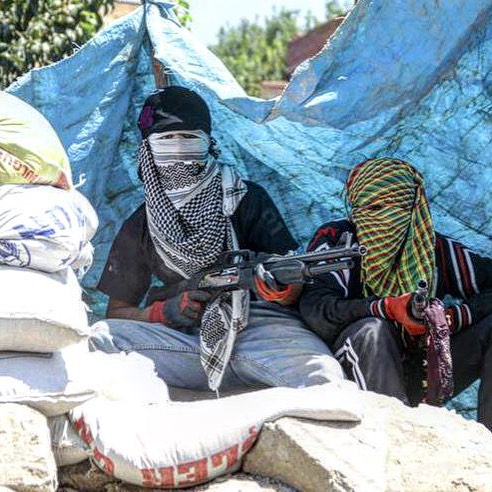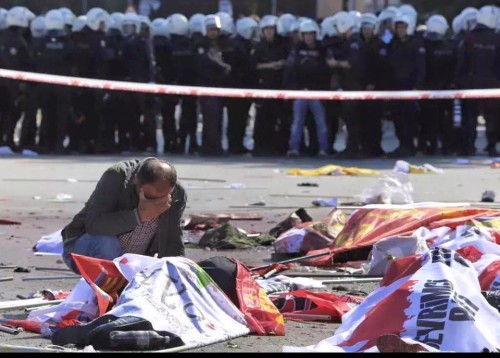Is the US changing policy towards Rojava and the Kurds?
It has been a busy weekend – to say the least- in the Middle East.
On Saturday morning, two suicide bombers targeted a Kurdish peace march in Ankara, Turkey. The blasts killed over 100 people and injured 400. So far nobody claimed the attack, though the PM Ahmet Davutoglu claimed it could have been carried out by ISIS. Accounts on the ground talked about riot police assaulting the crowd straight after the explosions, preventing ambulance to get to the site and helping people. Social media and the internet got shut down hours after the blasts. Curfews got in place in several cities. There has been a significant rise in social tension that reminds me of what happened in Italy during the 70’s and early 80’s, the strategy of tension a sort of counter-insurgency tactics in which the society is destabilized through violence.
In the meantime, during the weekend violence broke out again in Jerusalem and Gaza. Many fears for a Third Intifada and with the world concentrating mainly on Syria that could be a quite dangerous scenario.
This morning I woke up with another news that should not have surprised me, but somehow it did. The US has dropped about 110 pallets of ammunition and weapons to the YPG – The People Protection Unit -. We talked about them several times in this blog, as the only effective force on the ground stopping ISIS. They are also fighting for Kurdish rights, women equality and ecology.
While the Pentagon invested several billions dollars in training the Syrian opposition with really modest results, these Kurdish militia have fought bravely with scarce supplies and little solidarity from neighboring countries. Turkey calls them terrorists, even the Kurdish Regional Government in Iraq is not too keen on them. But the press loved them, especially their women unit — also known as YPJ. We will talk again soon about women being used as propaganda.
As the Russian entered the conflict the US government had to decide what to do. The Congress shut down the training program few days ago, it didn’t make any difference on the ground and at the same time there was a need to have a sort of influence in the area. Now they made the decision to arm the Kurds that have decided to form an alliance in the region with undisclosed Syrian Arab groups, facilitating the US efforts on not breaking completely with Ankara.
The Turkish president Erdogan must be furious. He tried in any possible way to stop the Kurds in Syria.
If the US is really keen on this shift of policy, it could be a changing point in the conflict. Time will tell.
Ankara, Bombings, Erdogan, Israel, Kurds, Russia, Syria, YPG, YPJ

